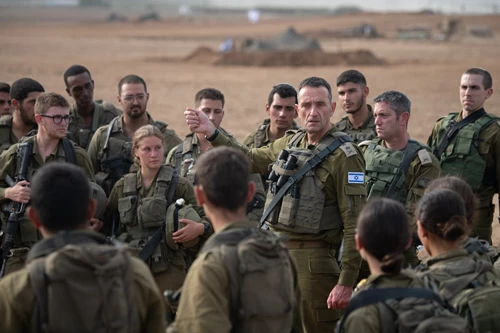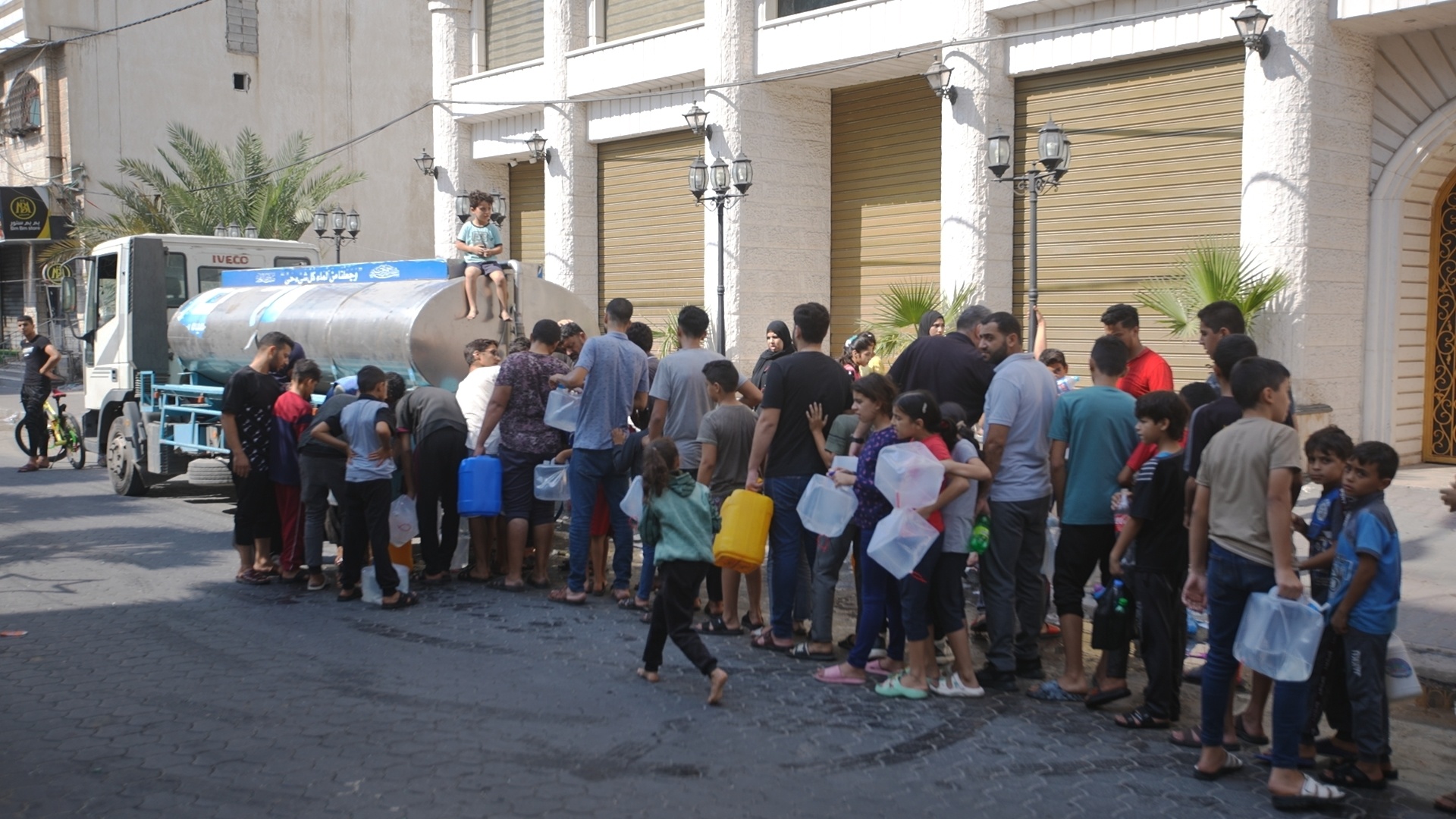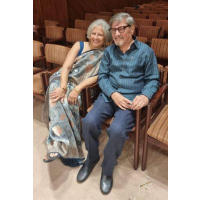
Source: IDF
Tel Aviv/Geneva: Last night’s bombardment and ground operations in Gaza by Israeli forces were reportedly the most intensive yet, taking the crisis in Gaza to a new level of violence and pain. Israel’s Prime Minister Benjamin Netanyahu today declared before Marom Brigade Soldiers whom he visited at the Adam Base: “We have very impressive successes. We are already on the outskirts of Gaza City. We are advancing. I want to make one thing clear, one of the soldiers said it just now – nothing will stop us.”
The Israeli Defence Forces (IDF) today claimed it continues to advance in Gaza City, and on November 2 alone, it killed over 130 Hamas terrorists. On November 1, it said it had killed “dozens”, including the Head of Hamas’ Anti-Tank Missile Unit, Muhammad A’sar, who was targeted in an aerial strike.
Compounding the misery and suffering of civilians, Israeli strikes on telecommunications installations and subsequent internet shutdown effectively left Gazans with no way of knowing what was happening across Gaza and cut them off from the outside world.
Netanyahu today again called on non-combatants – “leave, go south [Gaza] because we will not stop our action to eliminate the Hamas terrorists”. He also said, “In the past decade, we have built here a very strong economy and even if the war exacts economic prices from us, as it is doing, we will pay them without hesitation”.
The United Nations High Commissioner for Human Rights Volker Türk said in Geneva today that he lost contact with his colleagues in Gaza last night. “There is no safe place in Gaza and there is no way out. I am very worried for my colleagues, as I am for all civilians in Gaza,” he said, while once again reminding all parties in the conflict of their obligations under international humanitarian law and international human rights law.
Türk said the bombing of the telecommunications infrastructure has placed the civilian population in grave danger. Ambulances and civil defence teams are no longer able to locate the injured, or the thousands of people estimated to be still under the rubble. “Civilians are no longer able to receive updated information on where they can access humanitarian relief and where they may be in less danger. Many journalists can now no longer report on the situation,” he said, and warned that the humanitarian and human rights consequences will be “devastating and long-lasting”.
Thousands have already died, many of them children, Türk said. Given how military operations have been conducted until now, in the context of the 56-year-old occupation, I am raising alarm about the possibly catastrophic consequences of large-scale ground operations in Gaza and the potential for thousands more civilians to die.

WHO said thousands inside the Gaza Strip continue to need access to urgent and essential health services amid shortages of medicines, health supplies and other aid such as fuel, water and food. Those in serious need include thousands of seriously injured civilians, many of them children; more than 1000 people who need kidney dialysis to stay alive; more than 2000 patients on cancer therapy; 45,000 people with cardiovascular diseases; and more than 60,000 people with diabetes. These patients must be able to have sustained access to health care inside Gaza. Hospitals and other health facilities must be protected from bombardment and military use, WHO said.
Before the conflict started on October 7, 2023, around 100 patients each day needed to access specialized health care services outside the Gaza Strip because of the lack of needed, specialized health services inside Gaza.
On Wednesday, November 1, 2023, Egypt decided to accept 81 injured and sick people from the Gaza Strip for treatment. WHO experts visited Al-Arish in Egypt, visited medical evacuation facilities and met with medical staff and ambulance paramedics who received advanced life support training. WHO said there were 65 ambulances equipped with full resuscitation and life support capabilities. WHO is working to support the Egyptian Ministry of Health and Population in planning and establishing a comprehensive triage, stabilization, and medical evacuation system, by providing ongoing training for healthcare staff. WHO is also working with the Egyptian Red Crescent Society to ensure that psychological trauma support services are available to patients.
Al-Arish Hospital will be the main first referral hospital. It has fully equipped resuscitation and intensive care facilities, and a range of surgical teams to manage severe injuries, including major trauma and burns. Onward referral arrangements to second-line hospitals in Egypt are also in place. By last night, 361 foreign nationals were ferried by buses over the border to Egypt, and ambulances took 45 severely injured Palestinians to Egyptian hospitals, an Egyptian state-owned television channel reported. A deal to this effect to open the Rafah Gate at the Egypt-Gaza border was negotiated late on October 31, 2021, between Israel, Egypt, Hamas, the U.S. and Qatar.





